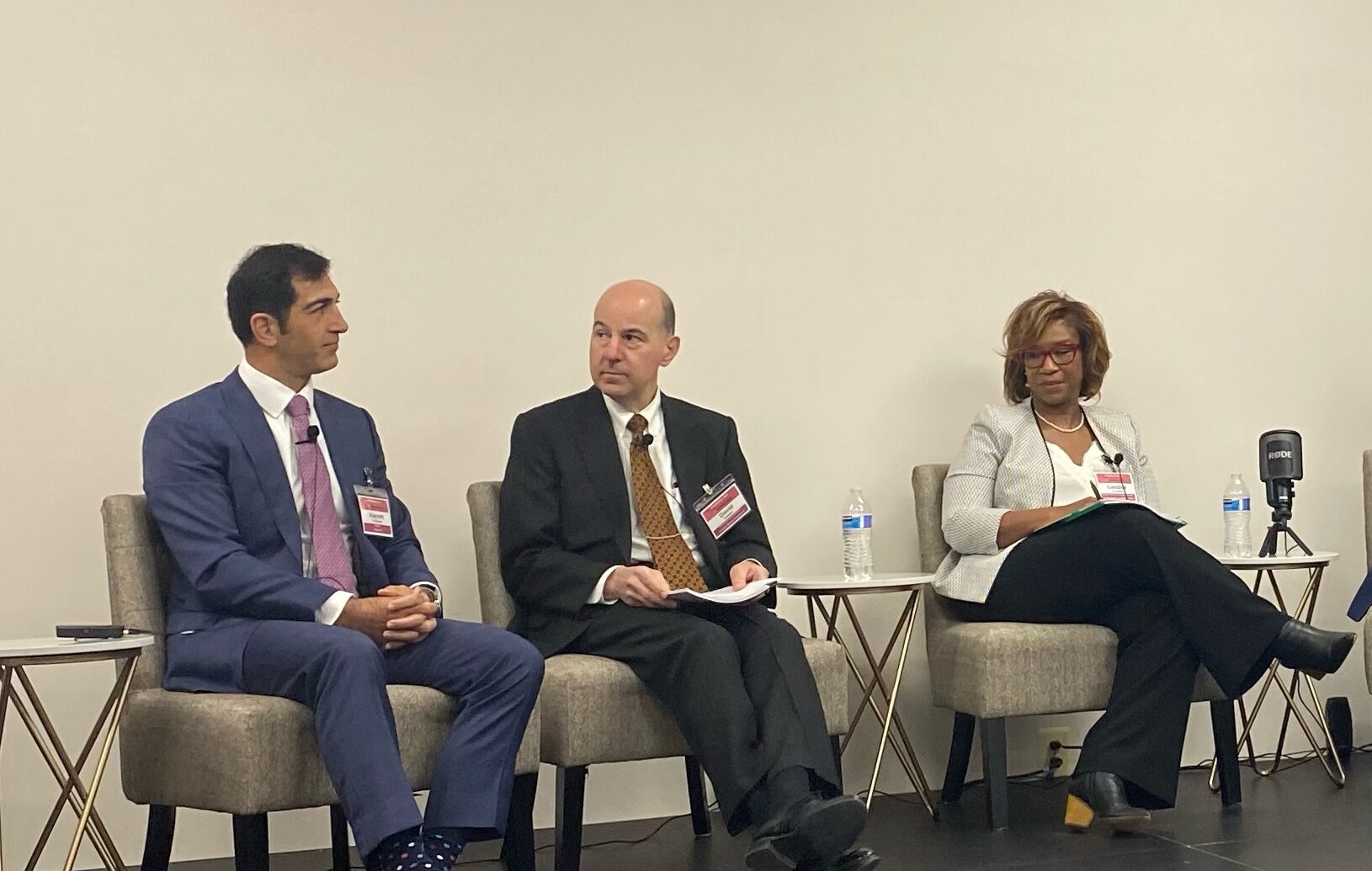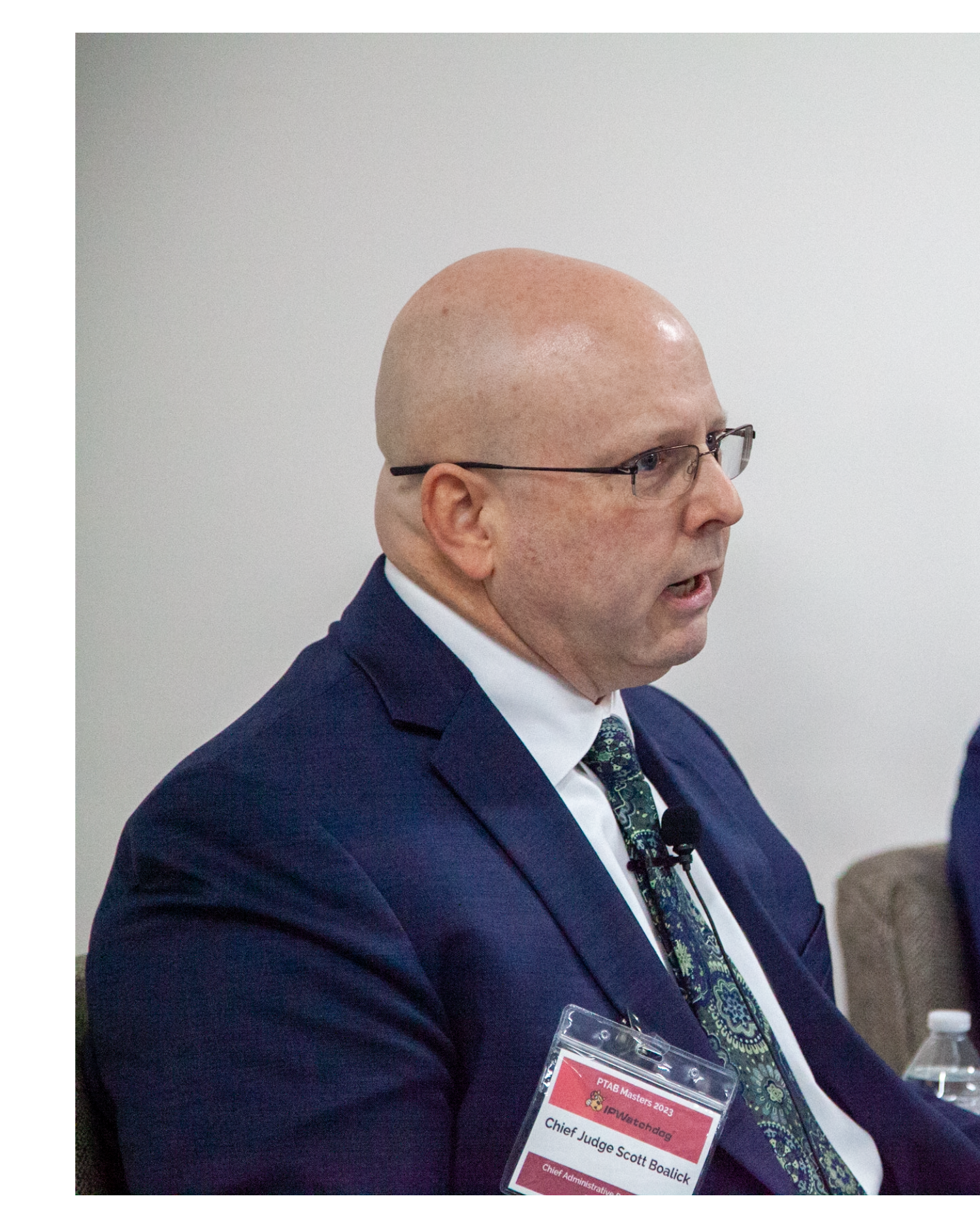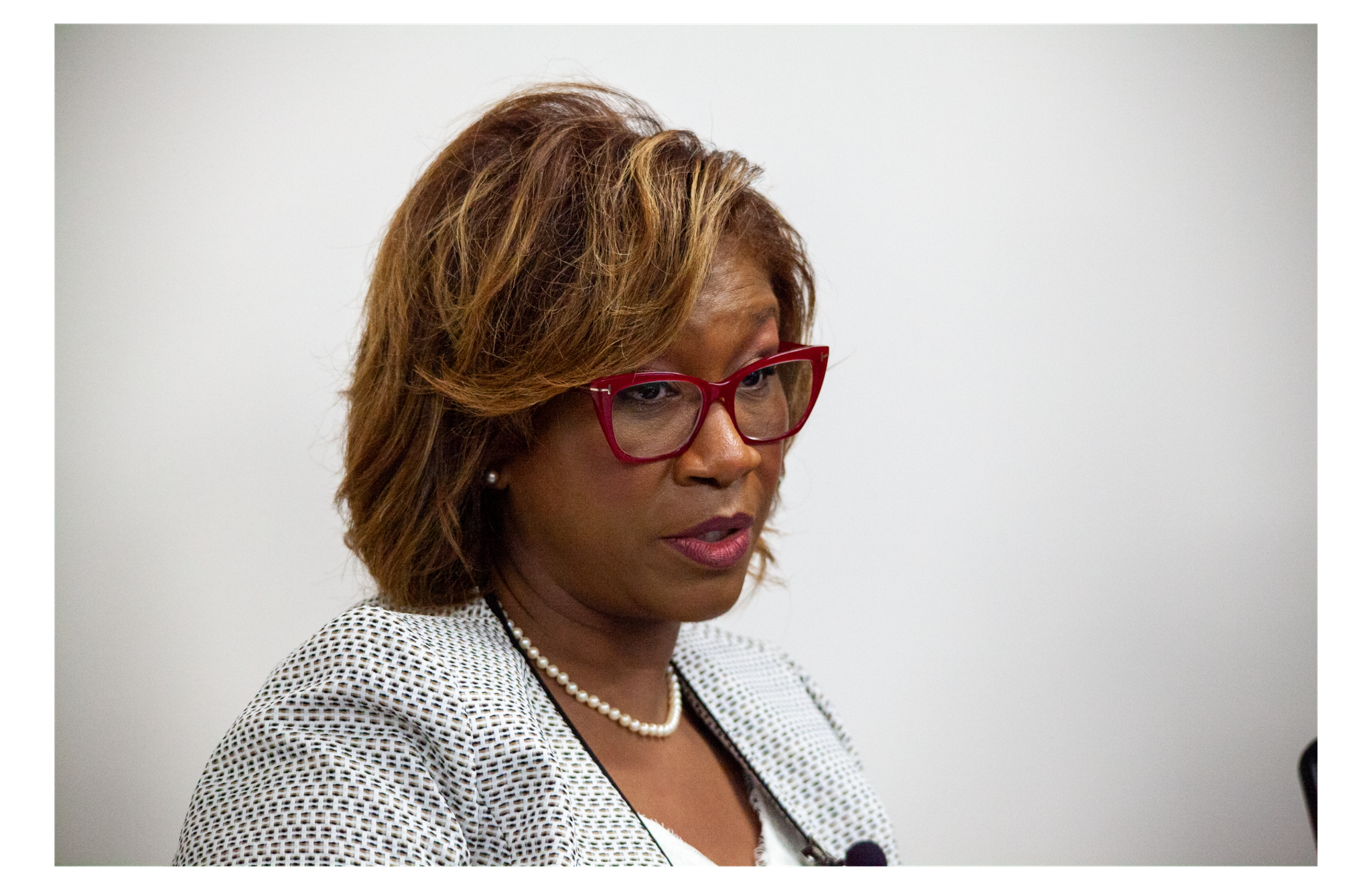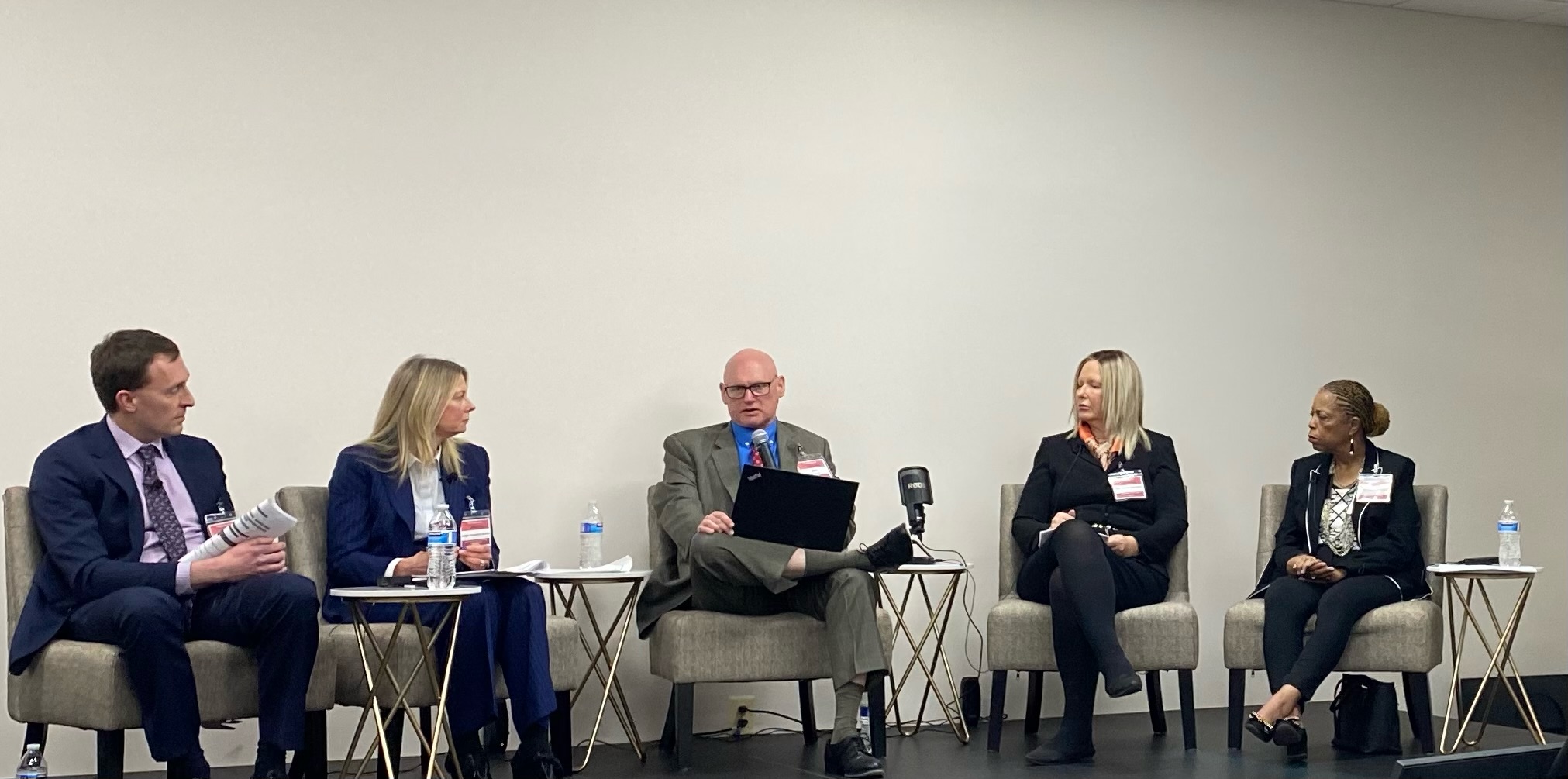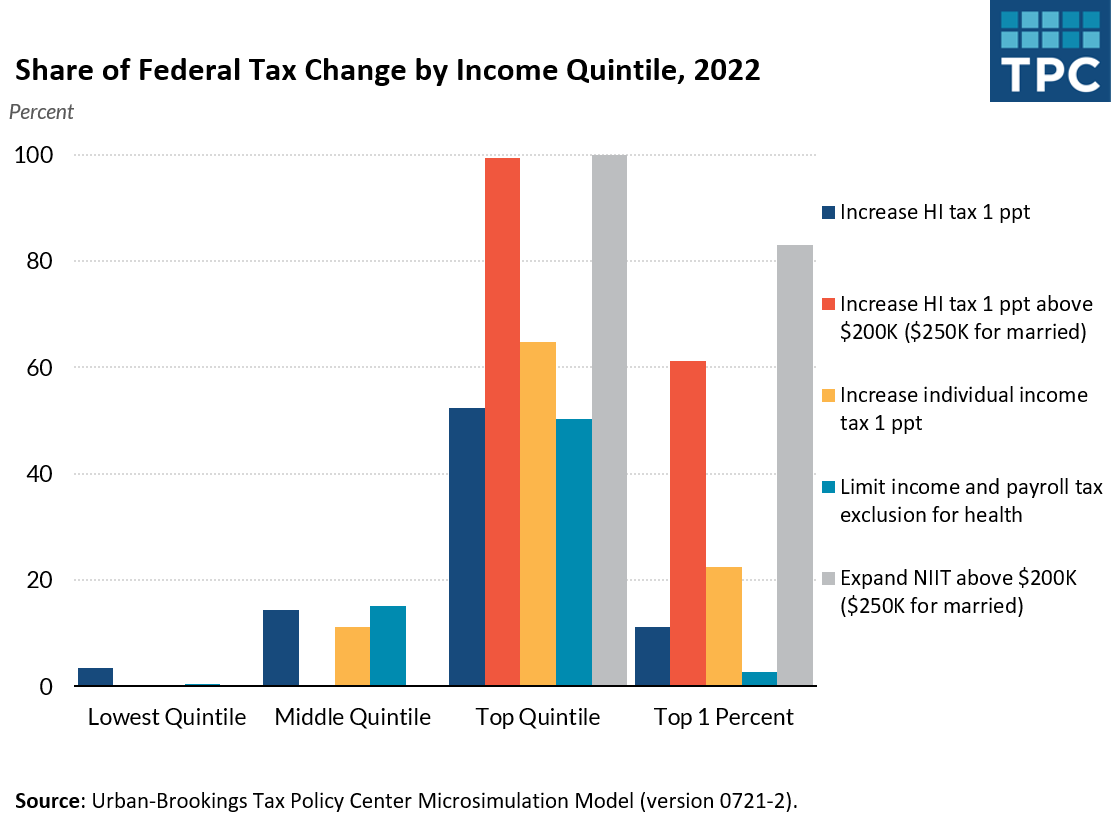The PTAB Simply ‘Hasn’t Worked Out’ as Intended
“The assumptions of Congress on point after point [with respect to the PTAB] have turned out to be wrong…they should revisit the entire situation.”- Judge Paul Michel
“Reforming the PTAB” Panelists (from left) Kayvan Noroozi, David Kappos and Candice Wright
During the PTAB Masters 2023 program, which was held this week on Tuesday and Wednesday at IPWatchdog’s headquarters in Ashburn, Virginia, former U.S. Patent and Trademark Office (USPTO) Director David Kappos explained on a panel about potential reform of the Patent Trial and Appeal Board (PTAB) that the PTAB was meant to be an alternative to district court, but “that hasn’t worked out.” Kappos was Director during the enactment and implementation of the America Invents Act (AIA), which established the PTAB.
“It wasn’t anticipated that the vast majority of proceedings would have parallel court proceedings,” Kappos remarked. He added that the USPTO Director was also supposed to have broad discretion to pass on instituting AIA cases for any reason, but that also has not panned out.
Brad Watts, now Vice President of Innovation Policy with the U.S. Chamber of Commerce and formerly the Minority Chief Counsel of the Senate Judiciary Committee Subcommittee on Intellectual Property, also joined the PTAB Reform panel and said that, as far as prospects for fixing some of the problems, IP law and policy is “wonky” and so there is always going to be congressional interest primarily from those who are knowledgeable and passionate about the issues, such as Senators Chris Coons (D-DE) and Thom Tillis (R-NC) or Representatives Darrell Issa (R-CA) and Thomas Massie (R-KY). “Those are who IP owners need to look to,” Watts said.
Potential solutions raised for reform include making the burdens of proof consistent between the PTAB and district courts and a “choose your own adventure approach” that would force petitioners to decide whether to bring the case in the PTAB or district court, “but not both,” Kappos said.
Hon. Scott Boalick
On another panel that reviewed the present PTAB landscape, retired U.S. Court of Appeals for the Federal Circuit (CAFC) Chief Judge Paul Michel spent some time recapping the “tortuous history” of the OpenSky v. VLSI case at the PTAB, in which OpenSky was found by USPTO Director Kathi Vidal last year to have engaged in extortion, but was initially not even dismissed from the case. Michel said that “the assumptions of Congress on point after point [with respect to the PTAB] have turned out to be wrong” and that they “should revisit the entire situation.” Since the USPTO couldn’t fix the problems even if they wanted to because of the way the statute is presently written, Congress must step in to address things like the standing requirement to bring an IPR and the burden of proof, Michel said. He added: “I’m hoping the end result of the scandal of [the OpenSky] case is that Congress re-enters the arena and clarifies and corrects the law.”
Candice Wright
On the same panel with Michel, PTAB Chief Judge Scott Boalick told attendees that the Office has received more than 4,000 comments in response to a call for comments on Director Review requests and the Office has processed about 183 Director Review requests so far. Boalick said the Office is “looking at next steps on rulemaking” with respect to Director Review and other issues and that those rules packages are “moving.” Boalick added: “We are looking for comments on all of these things.”
Candice Wright of the Government Accountability Office (GAO) also joined Tuesday’s panel on PTAB Reform and provided a recap of the GAO’s findings with respect to a recent study that found 75% of PTAB judges surveyed said their independence was affected by USPTO officials and PTAB management. Wright stressed that the GAO was chiefly concerned with transparency. “One of the things that became clear [during the GAO’s study] was that [PTAB] judges just wanted insight into who was providing comments on decisions. That’s what we want transparency about. How do you make a culture where there is trust?”
Wright said the USPTO is now taking steps to address the GAO’s recommendations and that there will be upcoming GAO studies on the Trademark Trial and Appeal Board (TTAB) and litigation financing.
Litigation Funders: We’re Not Afraid of the PTAB
In one panel on Tuesday, titled “Evaluating the PTAB Threat to Formulate Patent Assertion and Funding Strategies,” the speakers, who were mostly representatives of litigation financing companies, surprised some in attendance with remarks that indicated they often view the inter partes review (IPR) process as an opportunity. “We view IPRs not as an obstacle but an opportunity,” said Sarah Tsou of Omni Bridgeway. “If it’s that easy to invalidate patents [today], then the claims that are making it through are that much more valuable. You can’t escape forever.”
From left: Joel Merkin, Sarah Tsou, Jim Carmichael, Brad Close and Chris Freeman
Others on the panel agreed that sometimes the risk can pay off. “When a final written decision (FWD) comes out in favor of patent owner, it’s very advantageous,” said Joel Merkin of GLS Capital. Merkin also said that he has even advised patent owner clients in some cases to agree to a stay of district court litigation when they feel confident the FWDs will come out in their favor because then estoppel will apply.
The panelists also said that more patents are better when it comes to funders assessing risk. Chris Freeman of Burford Capital said that “IPRs are a reality. We have to deal with things as they are,” however, he said that there is still an inherent uncertainty associated with the PTAB
“As valid as I think a patent may be, I can’t say what the PTAB is going to do, so more patents are better,” Freeman said. Brad Close of Transpacific IP said “the days of asserting a single patent are over,” and Tsou added: “You need true diversity. Just having 10 patents that are all the same and are going to rise and fall on the same issues isn’t good.”
PTAB Judges Give Us the Good, the Bad and the Ugly
From left: Hon. Kevin Cherry, Hon. Jacqueline Bonilla, Jim Carmichael, Hon. Grace Karaffa Obermann and Hon. Muriel E. Crawford
On Wednesday, the PTAB Masters program concluded with a panel of PTAB Administrative Patent Judges (APJs), who provided advice to attendees about how to succeed before the Board. The judges shared tips such as avoiding focusing too much on attacking the examiner’s reasoning in an appeal; making your strongest argument up front; keeping up with the law (particularly in the area of Section 101); and don’t be afraid to disclaim claims. “You’re not prejudiced if you do that,” said PTAB Deputy Chief Administrative Patent Judge and Senior Legal Advisor, Jacqueline Wright Bonilla.
Bonilla sought to dispel some misconceptions she heard from panelists and attendees earlier in the program, such as that live testimony isn’t allowed at the PTAB or that the Board is hostile to evidence of secondary considerations. The Board is obligated to consider secondary considerations under the law, said Bonilla, but often the evidence just isn’t fleshed out enough.
Finally, Bonilla urged attendees to take advantage of the USPTO’s Motion to Amend Pilot Program and reminded them that filing a reissue or reexamination “is an option before, during, or after an AIA trial.” She also pointed the audience to the Office’s resources and guidance, and urged them to submit comments on the various requests for comments currently pending regarding changes to the PTAB and other USPTO initiatives.
The PTAB Masters 2023 Program was co-chaired by Scott McKeown, a renowned PTAB expert and author, and James Carmichael, a former Administrative Patent Judge, and one of the most successful patent owner representatives.
Join IPWatchdog for our next program in March, Software Masters 2023.

